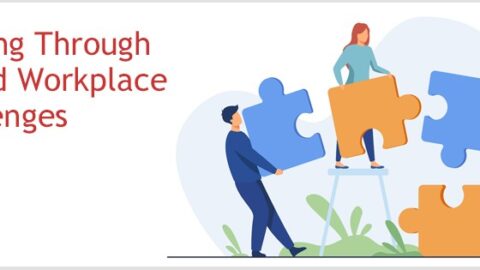Work-related stressors and the maladies they cause, like hypertension, cardiovascular disease, and decreased mental health, are more deadly than diabetes, Alzheimer’s, or influenza, according to an article in The Atlantic.
Additionally, workplace stress can interfere with productivity, impair relationships, and even cause safety issues. We’ve all seen over-busy people walking along – even crossing streets – with their eyes focused on their cellphone and not what’s in front of them.
So how do you recognize when you’re under too much stress – when you are “overextended”? It starts by being self-aware. When you start to feel overwhelmed, pay attention to how you respond to your work and the people around you. When we’re overextended, our positive qualities may actually become “too much of a good thing” causing negative impact. For example, someone who is detail-focused and analytical may exhibit “analysis paralysis” when overextended. Someone who is typically creative and social may become impulsive and overly emotional under extreme stress. And the “people person” who brings harmony to every meeting may suddenly become stubborn and resistant. When Mr. Peabody becomes Attila the Hun it’s time to get a handle on stress.
Oh, right, you say. There’s work to be done and we’re down two people…I don’t want to lose my job…I just need to get through this month and then I’ll (fill in the blank): get back to my family, get back to my workouts, get back to my life.
OK, people. Listen up. Part, not all, but PART of the reason we’re in this environment is that we allowed it to happen. Just like Lucy and Ethel in that famous bit in the chocolate factory, the more we demonstrated a willingness to work more, work faster, sacrifice life balance for the sake of a pay raise or out of fear for our job, the faster the conveyor belt went. The 40-hour work week turned into 50, then 60. Vacations? Who has time? Off hours? What are those? Welcome to our 24 x 7 world of work.
So what to do? I say, let’s take back our lives. Let’s stop the insanity and lean out for a change. Here’s how.
1. Set boundaries. Establish a time after which you don’t take work phone calls or respond to work emails, texts, smoke signals, whatever. Manage expectations about your “work hours.”
2. Be willing to say “no.” When asked to do something with a clearly unreasonable deadline or without appropriate resources, explain the impact it will have on your current work. Offer alternative dates, suggest alternative resources.
3. Stop and pause. Do a personal check-in. Adjust priorities, if needed. Take a break.
4. Breathe. Deeply and often. Consider meditation. Take a walk in the park or along the beach.
5. Laugh. Find something to laugh about every day. It’s good medicine.
“If you ask what is the single most important key to longevity, I would have to say it is avoiding worry, stress and tension. And if you didn’t ask me, I’d still have to say it.”
-George Burns (who lived to be 100)
Till next time,
Karen









